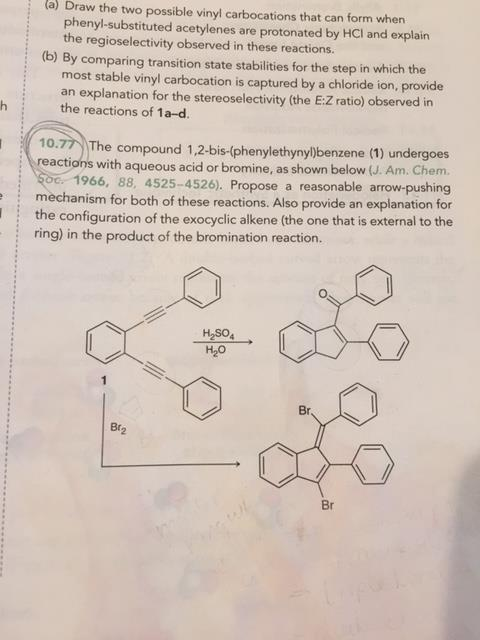Do not confuse an allylic group with a vinyl group.
Vinylic carbocation stability.
Atoms or groups attached to an allylic carbon are termed allylic substituents.
Vinyl and aryl carbocations are very rare to find due to their low stability.
An allylic carbon is an sp3 carbon that is adjacent to a vinylic carbon.
In the same way lower stability of aryl carbocation in comparison to a secondary alkyl carbocation can be explained.
An allylic carbocation in which an allylic carbon bears the positive charge.
The rate of this step and therefore the rate of the overall substitution reaction depends on the activation energy for the process in which the bond between the carbon and the leaving group breaks and a carbocation forms.
This will help you master carbocation intermediate reactions down the line including markovnikov alkene addition reactions unimolecular substitution sn1 β.
How does the stability of a carbocation work.
We know that the rate limiting step of an s n 1 reaction is the first step formation of the this carbocation intermediate.
Carbocation stability resonance rearrangement allylic vinylic examples organic chemistry duration.
Table of contents formation of the carbocation carbocations carbocation stability carbocations often occur as intermediates in reactions in organic chemistry.
It provides plenty of examples including allylic and vinyli.
Due to this reason the stability of a primary vinylic carbocation is less than a primary alkyl carbocation.
Stability of carbocation intermediates.
A vinylic carbocation is a positively charged carbon that is attached to a non carbon and participates in a double bond with another carbon.
A vinylic carbocation which has an empirical formula of c h is a carbocation that has a positive charge only on the alkene carbon atom.
Vinylic carbocations are not able to undergo resonance.
It is therefore important to get acquainted with its characteristics.
The organic chemistry tutor 100 569 views 15 37.
This is very very unstable and ranks under a methyl carbocation in stability.
This organic chemistry video tutorial explains how to determine which carbocation is most stable.

